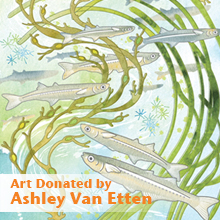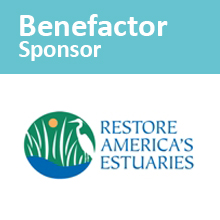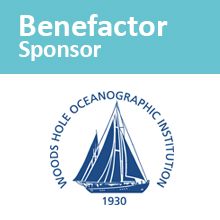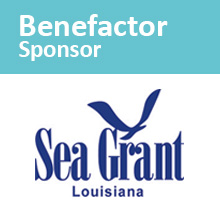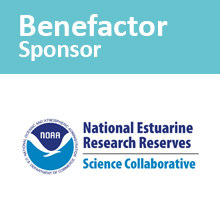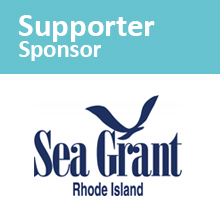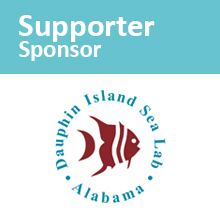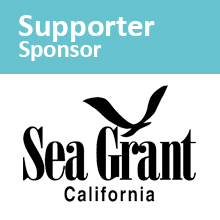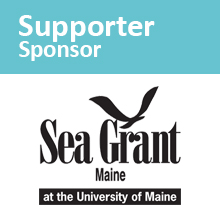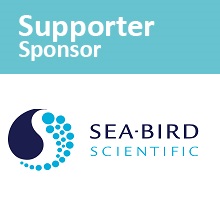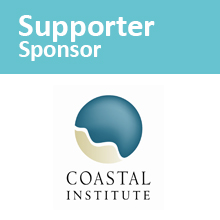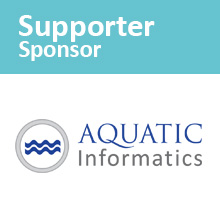|

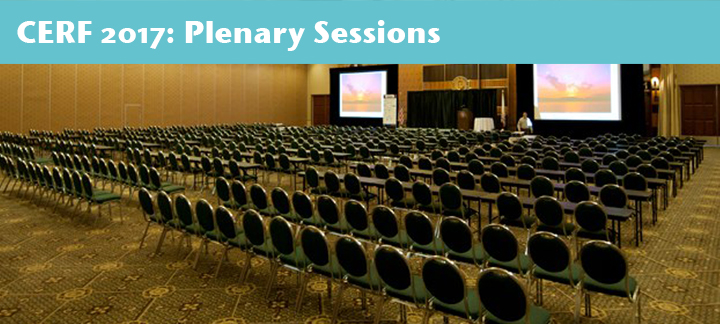
Plenary Sessions
Science and Decision Making to Improve Coastal Resilience
Food Webs and Fisheries
Science and Decision Making to Improve Coastal Resilience
Time: Monday, 6 November | 3:00 - 4:30 pm
Location: Rhode Island Convention Center - Ballroom A
The economic, human, and environmental health and safety of our coastal landscapes and communities is threatened by natural and man-made disasters and persistent coastal change. Extreme events such as Hurricanes Katrina and Sandy have had extraordinary and sustained economic, environmental and social impacts. While these catastrophic events have focused attention on specific coastal settings, the coastal inundation and land loss hazards associated with changing sea levels are of increasing concern throughout the Nation. As our population and infrastructure along the coast increases, and as sea-level and storm patterns change, we are at ever greater risk. From major urban centers such as Miami and San Francisco, to wild coastal landscapes, to remote island communities, the costs and consequences of changing coastal change hazards are becoming ever more apparent. In response to these threats, the scientific and management communities are focused on developing policy and practices to enhance coastal resilience. Research to improve understanding is intimately linked to decision-making to manage, and mitigate coastal landscape change and resource impacts that are required to protect lives, infrastructure, and livelihoods. Healthy, safe and sustainable coastal communities depend on the continued provision of the diverse benefits of healthy coastal ecosystems – including protection from coastal change hazards. This plenary session will provide an overview of coastal change hazards, projections of future sea-level change and flooding, and adaptation and mitigation efforts at federal, state and local levels.
PLENARY SPEAKERS
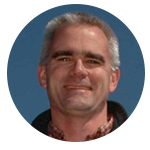 Rob Thieler Rob Thieler
Center Director of the U.S. Geological Survey's Woods Hole Coastal and Marine Science Center
Dr. Thieler received his B.A. in political science from Dickinson College, and his M.S. degree in environmental science and Ph.D. in geology from Duke University. Rob conducts marine geologic research on the geologic framework and evolution of the coastal zone. This includes understanding relationships between geology, sediment transport, climate and sea-level change, and coastal erosion. Rob has conducted assessments of sea-level rise vulnerability for the U.S. and locations worldwide. He served as a Lead Author of a U.S. Global Change Research Program report on potential impacts of sea-level rise, and works with many federal and state agencies to develop science and policy plans for addressing coastal change hazards. Rob also studies habitat use and availability for beach-nesting and migratory shorebirds. Rob developed the widely-used DSAS software package for measuring coastal erosion and accretion and has recently developed smartphone applications for coastal science.
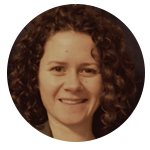 Carling Hay Carling Hay
Assistant Professor - Department of Earth & Environmental Sciences, Boston College
Dr. Hay received her B.S. in physics from McGill University and her Ph.D. in physics from the University of Toronto. Throughout her graduate work, her research interests have varied from atmospheric physics to geophysics, with topics ranging from severe weather in the Arctic to 20th century sea-level change. Since earning her Ph.D., Dr. Hay’s research has focused on using statistical techniques to better understand global mean sea level during current and past warm periods, and to develop the tools necessary to extract source information from historical sea-level records. The underlying motivation of her work is based on the belief that understanding how past sea level has changed in response to rising surface temperatures is a critical step in our ability to predict sea-level rise into the next century and beyond. Dr. Hay recently served as a member of the Boston Research Advisory Group, which was tasked with developing an updated climate census report for the city of Boston. As a member of the sea-level team, her role was to help understand the city's future risk to long-term sea-level rise.
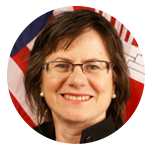 Kate White Kate White
Lead - US Army Corps of Engineers (USACE) Climate Preparedness and Resilience Community of Practice, Institute for Water Resources
Dr. White holds a B.S. and M.S. degrees in Civil Engineering and a Ph.D. in Civil and Environmental Engineering, is a registered professional engineer, and has almost 30 years of experience in the USACE. Dr. White's work includesdevelopment of policy, technical guidance, methods, and tools to support climate preparedness and resilience, with an emphasis on water resources management issues involving extreme events and natural hazards. She received a 2013 GeenGov Presidential Award: Climate Champion for her role in the interagency team that developed the Sea Level Rise Tool for Sandy Recovery. She was selected as the USACE 2014 Elvin R. "Vald" Heiberg III "Engineer of the Year," and was a 2015 Top Ten Federal Engineer of the Year by the National Society of Professional Engineers.
Food Webs and Fisheries
Time: Tuesday, 7 November | 3:00 - 4:30 pm
Location: Rhode Island Convention Center - Ballroom A
Fisheries provide nutritional, recreational, economic, and cultural value. Food webs greatly influence fish population and community dynamics, and, in turn, the structure and productivity of the food webs are affected by the fish. Coastal and marine food webs are notoriously dynamic, and are influenced by many physical and ecological processes and anthropogenic factors. Our understanding of food web dynamics is evolving with regards to temporal and spatial scales of ecological interactions and their variation, the role of behavior, and direct and indirect effects of broader scale drivers such as climate. And increasingly, we consider people as part of the food web in a two-way relationship rather than as an exogenous influence. Improving our understanding and ability to quantify food web dynamics has practical implications. Fisheries management is moving from a single-species focus to an ecosystem-based approach that emphasizes place-based examination of trade-offs. This requires viewing the fish population of interest within its food web and including the multiple roles played by people as members of the food web. This plenary session will provide an overview of marine ecosystems as coupled social-ecological systems, cultural recognitions of reciprocity, how considering people as part of the food web enriches food web analysis, and some recent advances in modeling tools that attempt to quantify fisheries dynamics within a food web context.
PLENARY SPEAKERS
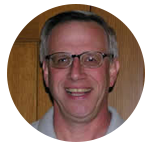
Kenny Rose
Horn Point Laboratory, University of Maryland Center for Environmental Science
Dr. Rose’s research centers on using mathematical and computer simulation modeling to predict and better understand fish population and food web dynamics in estuaries, lakes, reservoirs, and oceans. Dr. Rose is presently the France-Merrick Professor in Sustained Ecosystem Restoration at Horn Point Laboratory. Prior to that, he was as a Professor in the Department of Oceanography and Coastal Sciences, and Associate Dean in the College of the Coast and Environment, at Louisiana State University. He started his career as a consultant in Washington, D.C. and then as a research staff member at Oak Ridge National Laboratory prior to going to Louisiana State University. Dr. Rose has published over 175 papers on topics related to ecological and fisheries modeling and analysis, and has served on multiple editorial boards. He was recently awarded the Award of Excellence (for lifetime achievement) from the American Fisheries Society. He has been a member of multiple steering and advisory committees providing scientific guidance and oversight, including several National Academy of Sciences’ committees, the US GLOBEC program, and the US Army Corps of Engineers. Dr. Rose has been involved with a wide range of fisheries management issues and contentious environmental issues that often involve fish; these highlight the sometimes tricky arena for scientists where science meets policy and decision-making. Much of his work is collaborative and he has published papers involving over 400 different co-authors but has never collected any data himself. He received his BS degree in biology and mathematics from the University at Albany, and his graduate degrees in fisheries from the University of Washington.
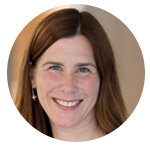
Heather Leslie
Director of the University of Maine Darling Marine Center and Libra Associate Professor of Marine Sciences
An international leader in marine conservation science, Dr. Leslie conducts research on the ecology, policy, and management of coastal marine ecosystems. She studies the drivers of ecological and social processes in marine systems, and how to more effectively connect science to policy and management. Specific research areas include coastal marine ecology; human-environment linkages, particularly those related to coastal areas; and the design and evaluation of marine management strategies. Leslie's work has appeared in the Proceedings of the National Academy of Sciences, Ecology, Conservation Biology, and Frontiers in Ecology and the Environment. A member of the University of Maine faculty since August 2015, Heather Leslie received an A.B. in Biology from Harvard University, a Ph.D. in Zoology from Oregon State University, and conducted postdoctoral research at Princeton University. Before arriving at UMaine, she was on the faculty at Brown University, as the inaugural Peggy and Henry D. Sharpe Assistant Professor. She is a Leopold Leadership Fellow.
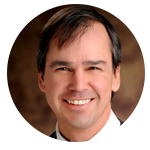 Eric Quaempts Eric Quaempts
Director for the Confederated Tribes of the Umatilla Indian Reservation’s - Department of Natural Resources
Eric Quaempts implemented the First Foods management approach at the Confederated Tribes of the Umatilla Indian Reservation’s - Department of Natural Resources. Previously, Eric spent eight years as a Wildlife Biologist in the CTUIR DNR’s Wildlife Program, and 8 years for the Umatilla National Forest where his career development included inter-disciplinary rotations in Forestry, Wildlife, Range, Reforestation, Fisheries, and Fire Management Programs on the Walla Walla Ranger District. Eric’s primary professional interest is in relating the culture of the CTUIR to the ecology of the Columbia Basin landscape, and in so doing promote understanding of the Tribe’s culture, natural resource restoration goals, and Treaty Rights. To facilitate this, Eric draws on his personal, community and cultural experiences, and professional background. Eric has presented the CTUIR’s First Foods management approach in a variety of forums, including State and National American Fisheries Society annual meetings, Society for Ecological Restoration and Ecological Society of America meetings, Society for Applied Anthropology National Conference, the National Water Quality Conference, at the Universidad de Concepcion in Chile, and to aboriginal communities and land managers in Australia. Eric has served on the Oregon Watershed Enhancement Board since 2009 and currently serves as co-chair. In 2011, he was awarded the Billy Frank Jr. Natural Resource Protection Award by the Potlatch Fund, and in 2014 was nominated for the EcoTrust Indigenous Leadership Award by the CTUIR’s Board-of-Trustees. Education Eric earned his Bachelor’s of Science in Wildlife Science from Oregon State University, and also completed graduate-level course work at Colorado State University in fire and land management as part of his professional development in the US Forest Service. Personal An enrolled member of the Yakama Indian Nation, Eric has spent most of his life living on the Umatilla Indian Reservation, and his professional career has been focused in working on the reservation and in the Ceded Lands of the CTUIR. Eric’s personal interests include fly-fishing, photography, traveling, cooking, reading, and dining, fine or otherwise.
|



 Rob Thieler
Rob Thieler Carling Hay
Carling Hay  Kate White
Kate White

 Eric Quaempts
Eric Quaempts